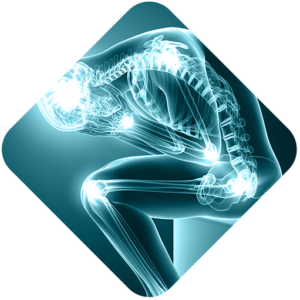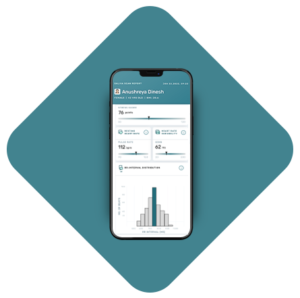Our heart is the most important muscle in our body and is working round the clock to keep us alive and healthy. The heart pumps oxygen rich blood and nutrients to the body through the blood vessels, while carrying metabolic waste such as carbon dioxide to the lungs. When the heart doesn’t get the care it needs, serious problems develop.


WHAT IS HEART HEALTH ?
A healthy heart rate is an indicator of a healthy heart. Heart rate is the number of times the heart beats each minute. Resting Heart Rate (RHR) is a snapshot of how well our heart muscle is functioning. Normal RHR for adults ranges from 60 to 100 beats per minute (bpm).
The variation in the heart rhythm between heartbeats is known as Heart Rate Variability (HRV). Heart’s ability to respond to different situations in reflected in these variations. A normal HRV for adults can range anywhere from below 20 to 200 milliseconds (ms).
MAGNITUDE OF HEART HEALTH
Around 32% of deaths globally are caused by coronary heart disease, making it the world’s single biggest killer. Over 80% of all cardiovascular-related deaths occur in low and middle income countries.
Therefore, a comprehensive approach focused on increasing public awareness, periodic screening and healthier lifestyle choices is imperative to cardiovascular risk reduction.


MEASURING HEART HEALTH
We can check our heart health at home by measuring pulse rate and blood pressure. CoHeal mobile application can synthesize a cardiac rhythm in real-time using Bio-scan.
While a lower RHR may imply more efficient heart function and better cardiovascular fitness, such as in athletes, a low RHR could also signal fatigue or even bradycardia. A high RHR could be a sign of an infection or heart arrhythmia
The Fight-or-flight (sympathetic) system tells our heart to speed up, limiting space for variability and is associated with cardio-vascular stress, or illness. The Rest-and-digest (parasympathetic) system tells our heart to slow down, making room for variability between beats and is associated with general fitness and good recovery.
HEART HEALTHY LIFESTYLE
- Women tend to have higher RHR than men
- RHR can increase during hot weather
- Stress, anxiety or happiness can raise RHR
- Standing or sitting up, after lying down, can increase RHR
- Medication can decrease RHR

TARGET GROUPS FOR HEART HEALTH
CoHeal supports diverse groups facilitating population health management
Academia
Help individuals cope with academic environment
womanhood
Emphasis on women's health including menstrual problems, pregnancy and post-partum depression
Corporate
Reduce impact of corporate stress on well-being
Geriatrics
Monitor Cognitive Health
Health & Wellness
Assess the impact of Fitness and Wellness regimes
Sports
Prevent Overtraining and improve performance
Armed Forces
Decreasing Vulnerability in the warzone
